No Greater Love than This
It is in the deepest dungeon that even a tiny flame can burn as brightly as the sun. Love conquers all.
You can listen to me read this essay:
This is the 3rd in my series of “Inspirational Essays,” which I am now publishing once a month.
One-time or recurring donations can now be made at Ko-Fi
Writing this essay, I revisited one of my mom’s books, East Wind. After high school, my sister Janna went to work in Germany for a while. She became friends with her elderly neighbor, Maria Linke, who told her inspiring stories of her 9 years in Stalin’s death camps. It was these stories that ended up in this wonderful book by my mother.
Richard Wurmbrand, author of Tortured for Christ, had this to say about Maria, “By God’s grace this very ordinary woman was enabled to serve Christ in prison in a way she never had in freedom.”
Hold on a minute now. I just wrote the word ‘Christ’, and I can imagine people stopping right here. I encourage everyone to open your mind to possibilities beyond what you have been taught is ‘triggering’—a word you hear everywhere nowadays that I really don’t like. Perhaps you had a negative experience with “religion” in the past. Who hasn’t? But this is not about religion. This is about finding inspiration in the lives of people who stood up for what they believed.
I just read today that adults in the United States are 'suffering' in their lives at a record level. That's according to the latest in a survey series from Gallup.
We have seen nothing yet of suffering in the Western world. I have no wish to minimize anyone’s suffering. I could tell many stories of my own, but if I am honest, it is nothing compared to what someone like Wurmbrand has faced. We have grown soft and the minute we feel stress we have been programed to take a pill or sit on the psychiatrists’ couch, spending billions of dollars for the privilege of complaining about our problems. It is true that the noose is closing in on our freedoms. But we can still make fun of our president, we can join groups of like-minded folk and protest. We can attend meetings. We can practice our faith. There are even a few comedians who still have the courage to actually be funny.
We must prepare for worse to come and gather strength from those who have gone before us. They lived through the most heinous assaults on their freedoms, and they did it with joy, love and compassion in their hearts. How did they do this and what can we learn from them?
Ordinary people like Maria are the real heroes. It just so happened that Maria’s story was told but most ordinary people’s stories are never told. Where would we be without these people who have the courage to stand up to tyranny and do so without ever winning an award, publishing a book, and then die in obscurity? These are the warriors who tip the balance from evil toward good, even if we do not see it with our own eyes, this is what they do. Their contribution to humanity cannot be measured. There are no statistics, no charts to prove what I am saying. But we know this truth in our hearts. If we think the world is bleak now, imagine what it would be without them. And every time the darkness rises up, these warriors rise up to fight it in the spiritual realm.
I met Richard Wurmbrand, his wife, Sabina, and their son, Mihai, when I was a child of 9 years old, shortly before I turned 10, in 1966. Our home in Woodland Hills, California was always filled with people from all over the world who came to see my dad. I well remember the day the Wurmbrands showed up on our doorstep, looking as if they’d been beamed down from heaven.
As a Jew who became a Christian, Richard Wurmbrand was doubly persecuted, both by the Nazis and the communist regime that came after. He spent 14 years in prison for the crime of refusing to deny his faith. In May 1966, he testified before the U.S. Senate's Internal Security Subcommittee and stripped to the waist to show the scars of eighteen deep torture wounds covering his torso. His story was carried across the world in newspapers throughout the U.S., Europe, and Asia. Wurmbrand was warned in September 1966 that the Communist regime of Romania planned to assassinate him; yet he was not silent in the face of this death threat. Of course not! He had not been silent through years of the worst tortures imaginable.
Nowadays, many people would dismiss witnesses to the faith like Wurmbrand as fools, even dangerous fanatics. The World Economic Forum’s prophet, Yuval Noah Harari, derides those who believe in God as old-fashioned. He tells us, “History began when humans invented gods, and will end when humans become gods.”
It is Harari and all the other elitists who are the fools.
Stand Harari up next to Wurmbrand. Have them look into each other’s eyes and see Harari’s quickly drop under such a searing gaze. The arrogance of a man who conspires to be God stripped bare before the humility of a man who lives to serve God. These two men stand at opposite ends of a great divide and there will never be a compromise between the two. We are always told to compromise, that we can accomplish so much more if we just give in a little. But that little bit always ends up being more and more. In this battle, there can be no compromise. It is nothing less than good against evil. Wurmbrand has left this earth and has faced his Maker. Yuval has yet to do the same. That reckoning comes for us all.
If you have ever had the privilege of meeting someone like Wurmbrand, you know what I am talking about. I will never forget his face, the depth of suffering and compassion in his eyes, the determination of his jaw, the joy emanating from his spirit. His wife never stopped smiling. There was no bitterness, no hatred of their tormentors. Only love. Their son was so thin, but with the same spirit, just like his parents.
I recently reconnected with Mihai, after all these many years and he immediately remembered spending time with my family. He recalled how my dad had jokingly said, “You must think there’s a communist under every rock in America,” to which Mihai's dad had responded, “No, I think there’s a communist in every home—even under every bed.”
And now, certainly, it isn’t a joke any longer. Communism has infected every area of our lives, every room in our houses. Just think of all the smart homes, the smart phones, Alexa watching over our families. How we are surveilled constantly, and everyone is used to it.
My dad was inspired by the Wumbrands, as well as by Brother Andrew, whom we met in Denmark during our travels, to smuggle Bibles into Romania. I write about this incredible experience in my essay How to Become a Domestic Terrorist. If caught, my parents would have gone to prison. I experienced terror at every border crossing, and then an almost euphoric relief once we made it through. Before each border crossing, Dad prayed that God would blind the eyes of the guards to the suitcase we had filled with Bibles. The guards were thorough in their searches, at one crossing even tearing the lining out of my mom’s purse. Despite checking the tires with special devices and ordering us to take out every suitcase so they could be inspected, it was as if that one brown suitcase was invisible. Things happened on that journey that I can't explain other than that they were miracles.
I have written down these stories so that they can be passed on from generation to generation. At night, when my children went to bed, I told them these stories, and I will tell my grandchildren when they are older, so that the courage of those who went before them will not be forgotten.
Over the past few weeks, I read Tom Robb Smith’s Child 44. It describes the suffering of the millions of ordinary citizens under Stalin who were starved to death while the elite hoarded grain and ate well. It was demanded of ordinary citizens to believe that they lived in “paradise.” Because that’s what communism is—paradise on earth.
I researched Pitesti Prison, (Romanian: Închisoarea Pitești), infamous for mind-breaking and reeducation experiments conducted between December 1949 and September 1951 under the directives of the Communist Party.
And I read Mihai Wurmbrand’s book, Between Hammer & Sickle, which I will write more about here.
I can guarantee, we will be hearing much more about ‘domestic terrorism.’ Those who are already being identified as such—the list is growing longer—what will happen to them?
We have the delightful Katie Couric—what a winning smile she has!— saying what is being repeated everywhere in mainstream media and among the general populace as gospel truth, “And the question is how are we going to really almost deprogram these people who have signed up for the cult of Trump.”
David Atkins, a Contributor @monthly Bylines @theprospect, elected DNC Member from CA, who goes by the pronouns he/him, laments on Twitter:
No seriously...how *do* you deprogram 75 million people? Where do you start? Fox? Facebook? We have to start thinking in terms of post-WWII Germany or Japan. Or the failures of Reconstruction in the South.
To which many responded with chilling suggestions:
Cut them off completely. End the flow of false information suddenly and immediately. Starve out the conspiracies. Let them die. Pump the truth out 24/7 on all platforms remaining.
Give them someone else to follow - I don’t think it’s a coincidence so many are evangelicals. These are followers.
Easy, make a list of trump supporters and start blackballing them from decent society.
They are lost. We start with their kids. We start in kindergarten teaching acceptance and tolerance, the importance of diversity.
James Lindsay, a voice of reason amidst the hysteria, points out an example of the “tolerance” being taught in schools:
No big surprise that he’s now been banned from Twitter. Another one of us that they can’t bear speaking the truth.
How do you deprogram millions of people? What if they don’t want to be deprogramed?
You bring suffering upon the general population and make those millions into the scapegoats. You shut them down. You terrify them. And then, for those who don’t change their ways, you force them into reeducation camps. College campuses have been reeducation camps for years. Our youth have been indoctrinated and it is only getting worse.
A popular diversity-training film for new college students is Blue Eyes, documenting an experiment conducted by Jane Elliott, who now makes a fortune as a sensitivity trainer. As a teacher, Elliott first conducted this experiment with her elementary age students in the 1960s. She divided the kids into blue-eyed and brown-eyed groups where the brown-eyed kids are psychologically brutalized while the blued-eyed kids are psychologically empowered. This became a famous lesson in white racism.
Racism is real. But it’s not a ‘white’ thing. Just go to Africa and you will see the brutality of racism played out between groups whose color is anything but white. In America, this white against black is purposely engineered to fragment society. To put focus on the scapegoat group so it will not be on the real criminals—the elite class.
It should be obvious that what Elliott exposes in her experiment is exactly what is happening now with the demonization of the unvaccinated over the past three years, and now the creation of “safe spaces for Blacks” in schools while, conversely, destroying all safe spaces for girls and women. Any guy who ‘identifies’ as a woman can invade women’s spaces.
Yet, if I, as a white woman, decided I was Black, I would be called every vile name under the sun for doing so. I can change my gender, I can call myself a toad, a unicorn, anything, just so long as I don’t say I’m Black. Yet, this makes no sense. We all remember Rachel Dolezal, a woman who had been the head of the NAACP in Spokane, Washington, who as The Daily Beast described, “became a national laughingstock and social media meme—and was, in fact, a pioneer of a yet-unseen wave of racial imposters.”
Then there’s a BLM activist going by the name Satchuel Paigelyn Cole, who admitted that she's pretended to be black for years.
Here’s her Facebook confession:
“I need to take accountability for my actions and the harm I have done. My deception and lies have hurt those I care most about. I have taken up space (emphasis mine) as a Black person while knowing I am white. I have used Blackness when it was not mine to use…. I am sorry for the harm I have caused. I am sorry for the hurt and betrayal. I will do what I can to show that I want to be a better person.”
Now, let’s replace “Black” with “woman” and imagine it’s a man confessing that he “took up space as a woman” while knowing he is a man.
Just as it made no sense to arbitrarily demonize people with brown eyes, it makes no sense to do the same to whites—that is unless you are purposely creating this atmosphere where it is justifiable to turn one segment of society into the scapegoats.
In Mihai Wurmbrand’s book, Hammer and Sickle, he explains to Westerners why there had been no rebellion in Romania when 18 million had been so ruthlessly oppressed. This is what he said:
Our prisons have been filled with those who have died resisting oppression. Tens of thousands of peasants who resisted collectivization were killed. Their stories have gone untold.
Communism rules by fear, today as in the past. In a city of one and a half millions, Bucharest, there are 90,000 secret police. Every spy spies on his fellow spies. Even when a prisoner is interrogated, there must be several officers who must come up with the same result; if they don’t, one is in trouble. In a Baptist church whose congregation had been reduced by fear and harassment to twenty-one, four were known informers, each checking his neighbor’s story. There is a party boss for every street with spies in every block. They record every visitor, especially overnight callers. All the information is passed on to the secret police.
Acts of defiance towards the police are unknown. Student rebellion? Not when the first critical word against the regime means certain arrest. Not when three people meeting together to grumble about conditions is a “plot” that may end in torture and death.
Mihai Wurmbrand describes how Gheorghe Gheorghiu-Dej, predecessor to Nikoli Ceausescu, wanted to trade with the West but he thought that “the West wouldn’t trade with him so long as he maintained a police state that kept tens of thousands in jails and slave camps. He was stupid. The West would have done business with him anyway. Lloyd George said long ago that trade must be done, even with cannibals. Capitalists are so eager for profit that they will sell to Communists the ropes they need to hang all of them.”
In his eagerness to appease the West, Gheorghe released political prisoners and one of them was Mihai’s father. Mihai describes seeing his father at last.
Faith had kept him alive through fourteen and a half years of prison, had healed lungs riddled with T. B., had mended limbs broken by torture. Later, alone in my room the words of Jesus came into my mind: “Ye shall know the truth and the truth shall set you free” — free even in prison.
Word spread quickly. At the railway station early next morning were dozens of friends and brethren, all the women with their arms filled with flowers. The crowd milled around us. Everyone was looking for a loved one. Then down the track came the ancient coal-burning locomotive, its black belly caked with grime. At a carriage window I saw my father’s face. He stared at the waving, smiling crowd with armfuls of flowers, and for a moment he could not realize that they were his flock and family. He had not expected this.
His head was shaved and he was terribly thin and his clothes were mere rags. Starvation had stripped every ounce of flesh from his face and body, and only his clear blue eyes were unaltered. He had first been taken from us as a vital, handsome man in his thirties, and now he was over fifty.
Weeping, we embraced. Someone had a camera and when the first greetings were over, photographs were taken.
My mother is shown in them smiling a smile of great happiness. My father’s smile is tinged with a deep sadness.
I look as if I’d seen a ghost.
Father had become a living legend.
If there is anything I can tell people to do, it’s read. Read. Read. Read. Get off of your technological devices. Open a book, feel is weight in your hands, and lose yourself within its pages—like the pages of Mihai’s book.
I don’t know where I would be without books. If I was stuck on a desert island and could take only one author’s books with me, I suppose it would be C. S. Lewis. No one has made a bigger impact on my life. Thanks to Lewis, I learned that I was free to travel wherever I wanted inside my mind—and that the choices I made of where to go with my imagination were important. They would either help or hinder me in my journey in the real world. I learned that love is stronger than hate and that those with compassion always defeat the monsters.
I am not saying there is not a time and place for battle. I’ve fought more than my fair share—literally and figuratively. There are some great battles in Lewis’s The Narnia Chronicles. But they are secondary to the compassion of King Aslan, toward the boy, Edmund, who betrays him. Aslan forgives Edmund and in the ultimate act of love, lays down his own life for this weak and flawed child. This is Deep Magic, that a sacrifice must be made, and the White Queen is sure she has triumphed over Aslan. There is no battle now, it would seem, that can defeat her.
But there is a Deeper Magic, and the King is resurrected.
The Deeper Magic has been all but forgotten in this modern age of self-gratification and material success, even the White Witch and her subjects in Narnia had forgotten it.
But it is there, and it will always triumph.
I want to tell the story of how I first discovered The Lion, the Witch and the Wardrobe and how it changed my life. And now, for those conservative Christians who are offended by the word “magic” know that my parents were offended by it, too. They didn’t want me to read the Narnia books as a child. I am forever thankful for the English couple who chided my parents and caused them to relent. Some people are truly angels. I have met so many along the way.
By now most of my readers are aware of how in 1966, my family packed up and took off to travel when I was ten years old. My dad practiced what he preached and although most people thought we were crazy, when God told him to start traveling, that’s what we did. I’ve always been glad he was a little crazy like that! We spent our last night at a friend’s house before boarding our Pan Am flight with our 16 pieces of luggage, knowing we would be gone for at least a year.
It’s fun to look back at the menu for our Pan Am flight. My parents didn’t drink, nor did they smoke but just imagine the days when you could smoke on a plane. And nobody asked you to do absurd things like take off your shoes going through security.
Not long after we landed in London, we drove out to the Cotswolds to visit our friends, Noel and Hillary Doubleday. We’d never seen anything so picturesque. The Doubledays lived in an old farmhouse, whitewashed and thatched. Dad parked and we tumbled out, excited to be staying in a home that looked like it belonged in a fairytale.
The couple came out to greet us. Noel was tall, slim and slightly stooped, a messy mop of thin dark hair on his head, an oversized pair of glasses on his face that kept slipping down his nose. Hillary was tall, too, and large in personality and size, with wispy hair the color of sludge, cheeks as red as apples and three chins that jiggled like jelly when she laughed, which she did often, in a high-pitched shrill tone. Where her husband was reserved, she was loud and jolly, running forward and snatching each of us up in a smothering hug. The couple was followed by a pack of dogs of every shape and size, barking, jumping, tails wagging joyously.
The farmhouse was big with many downstairs rooms and steep narrow staircases leading up to other rooms. Two of the dogs were allowed inside the house and were treated much like humans, allowed full access to everything, food off the tables, beds, chairs. We were given hot water bottles to warm our feet at night. I slept in a room at the top of the stairs, the ceiling sloping down, one small window to look out of if I knelt on the bed. From there I could peek out at the rolling hills and hedges. I saw a woman on horseback riding along a pathway between the fields. I sighed, my elbows resting on the ledge, chin in my hands. What I would give to be that woman, riding along like that! For the first time since our arrival, clouds were gathering, and the night was cold.
The next day it was raining hard. Janna and I explored the house, naturally drawn to the library with its beamed ceiling, ancient walls and moth-worn sofas and chairs piled high with cushions. The room was empty and silent except for the fire that crackled cozily in the grate.
“Books!” breathed Janna happily.
We approached the shelves with excited reverence, wondering what treasures we would find. Many looked uninteresting, like our dad's books. But on one shelf we found a series of books that attracted our attention. The binding was bright, I peered closer and took the first book in the row off the shelf.
“The Lion, the Witch & the Wardrobe.”
It was clearly a children's book, with a picture of a very English-looking girl, wearing a worried expression, disappearing through what looked like an old-fashioned closet. Above the closet was the face of a long-maned lion starring straight out at me.
“This looks interesting,” I told Janna, showing it to her. “What's a wardrobe?”
“That,” she said, pointing to the old-fashioned closet in the picture.
Hillary appeared at that moment, the two dogs bounding in after her. When she saw the books, we had picked she clapped her hands excitedly.
“Lovely, lovely” she cried. Lovely was her favorite word. There didn't appear to be anything in the world that Hillary didn't think was lovely. “Would you both like to read it?”
We nodded.
“Oh, lovely!” she cried again. She bustled out of the room and quickly returned with another copy. “You haven't heard of the Narnia Chronicles?” she asked, flabbergasted.
We said no.
“Well then, you are in for a treat, aren't you!” She fluffed up some cushions on the two big chairs facing the fireplace. “Now sit down, there you are my dears!”
We sat and began to read. That was the moment when I discovered magic. Sitting in that old, thatched farmhouse in the English countryside, in an overstuffed chair in front of a crackling fire, the rain beating down outside, I read and read, forgetting where I was or who I was, living the adventures of Lucy, Edmond, Susan and Peter. Just like the four of us in our family, two boys and two girls, off in a strange land.
And once we had finished the first book, wonder of all wonders, there were more! The Horse and His Boy that was to become my favorite, The Magician's Nephew, and so on.
But that first book was the beginning. Lucy had found Narnia by walking into a wardrobe. I was sure that Narnia existed. It was too real; nobody could make something like that up!
Who was this C. S. Lewis, the man who had written these books?
“The most wonderful person ever to live!” declared Janna, eyes shining with enthusiasm.
“The wardrobe was made from wood from Narnia. Do you think it still exists?” I asked.
Janna gave me one of her most disdainful looks. “Of course!”
“So maybe we can find it?” was the logical next thought in my mind.
“Maybe. But that's not the only way to Narnia. There's got to be other magical ways. Anyway, it makes sense that there's other worlds, and doors that lead to them. I mean, we can't be the only ones in the universe,” said Janna with conviction.
I frowned at that. “But mom and dad say--”
Janna interrupted me, lowering her voice, “They don't know everything.”
“They don't?” I was shocked. How did my sister dare think like this?
“Well, they almost know everything. But trust me, there's other worlds.”
“That's blasphemous.”
Janna snorted. “Tell me where it says in the Bible that there's no other worlds.”
I thought about that. “Well...”
“See?” she said triumphantly. “You can't think of anything. People are way too uptight. They think up all these things without any basis, just so they can suit their own theories. Anyway, C. S. Lewis is a Christian. He's talking about Christian stuff here, the lion is Jesus, it's obvious. But see, he still believes in all this magic.”
“But then, how could he really be a Christian?” I asked, confused.
“He just can, okay? I mean, the Doubledays are, right, and they gave us these books!” Janna folded her arms across her chest and gave one emphatic nod of her chin. Well, that was it then.
When it came time to leave, the Doubledays gifted us with a set of the books. My parents were skeptical. They didn’t want us reading books with magic in them. But when my dad realized they were written by C. S. Lewis, an author he greatly respected, and that the Doubledays recommended them with the highest praise, he relented.
And so, we continued on our journey that led across the English Channel into France, all along the way, sitting in the back of the VW van and reading the wonderful books. Naturally, almost every place we stayed in France had old wardrobes. This was beyond amazing for Janna and me! As soon as we saw one, we approached it breathlessly, stood before the doors and prayed with all our might that this would be the magical wardrobe that would lead us into Narnia. Then, we would open the doors and…
Well, you can guess that we never did find the right one. But that didn’t stop us from trying. I still wonder to this day; I can’t help it. Is there that magical wardrobe, still waiting to be discovered?
So much of life is beyond our understanding anyway—most of it is. I am forever thankful for that discovery in a thatched English house on a typical rainy day. After that, the world never looked the same again. It always held a sense of wonder.
There is a powerful quote, a well-known one, from Tortured for Christ. A man named Matchevici is being tortured and is offered a way out by the secret police.
“Matchevici answered, ‘I don’t wish to remain alive and be ashamed to look in a mirror, because I will see the face of a traitor. I cannot accept such a condition. I prefer to die.’ The officer of the secret police shook Matchevici’s hand and said, ‘I congratulate you. I didn’t expect any other answer from you. But I would like to make another proposal. Some of the prisoners have become our informers. They claim to be Communist, and they are denouncing you. They play a double role. We have no confidence in them. We would like to know in what measure they are sincere. Toward you they are traitors who are doing you much harm, informing us about your words and deeds. I understand that you don’t want to betray your comrades. But give us information about those who oppose you so you will save your life!’ Matchevici answered, as promptly as the first time, ‘I am a disciple of Christ and He has taught us to love even our enemies. The men who betray us do us much harm but I cannot reward evil with evil. I cannot give information even against them. I pity them. I pray for them. I don’t wish to have any connection with the Communists.’ Matchevici came back from the discussion with the political officer and died in the same cell I was in. I saw him die—he was praising God. Love conquered even the natural thirst for life.”
Richard Wurmbrand knew what he was talking about. So did his wife and his son. Maria Linke knew. Mihai tells the story of 12 Greek Orthodox priests who were imprisoned. He said that what the communists required was “a little compromise.” Even among Jesus’s 12 disciples there was one traitor. Yet not one of these priests would compromise their faith. They would rather stay in prison and even die.
Compromise is all we know in the West. A little compromise can always be justified for the “greater good,” and now for the “health & safety” of the world. Words have lost their meaning. Promises can be broken. A lie can be truth.
These warriors gladly endured the worst tortures to their minds and bodies rather than deny the truth. This is a suffering that we in the West have yet to experience. And it is most assuredly coming. Will we be ready?
It is in the deepest dungeon that even a tiny flame can burn as brightly as the sun. Love overcomes all. This is the Deepest Magic.
“Greater love has no one than this, than to lay down one’s life for his friends.” John 15:13
I thank Mihai for our great conversation. I am forever thankful to my mother for her journals and letters that she kept from our travels and for our many conversations that kept those times alive in my memory.
Thank you for reading and listening. God bless you all. Please share and comment. And please subscribe.
One-time or recurring donations can now be made at Ko-Fi




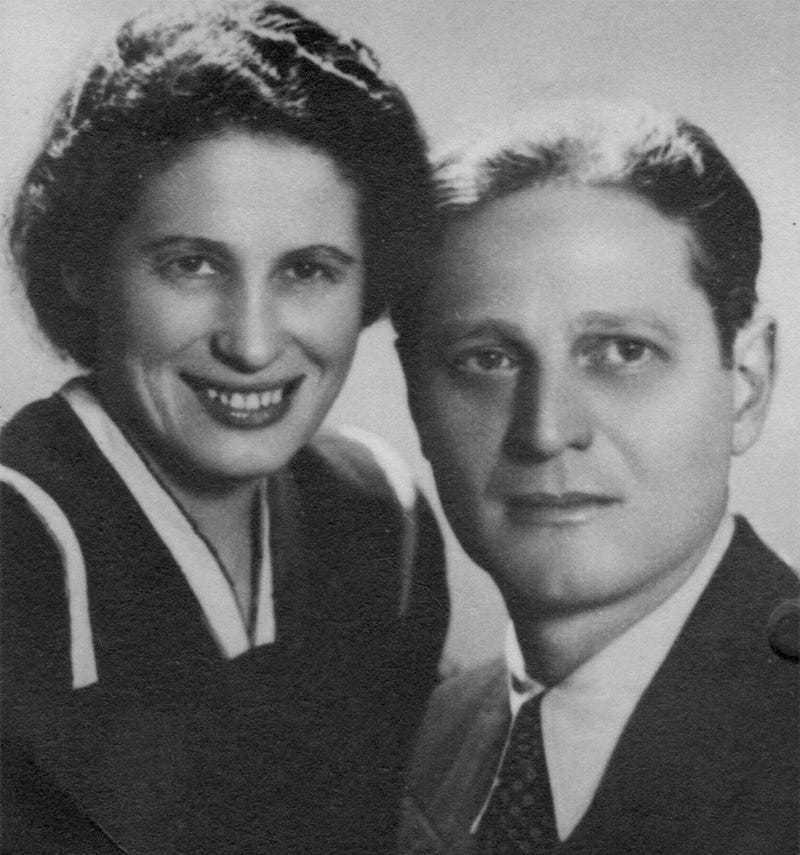
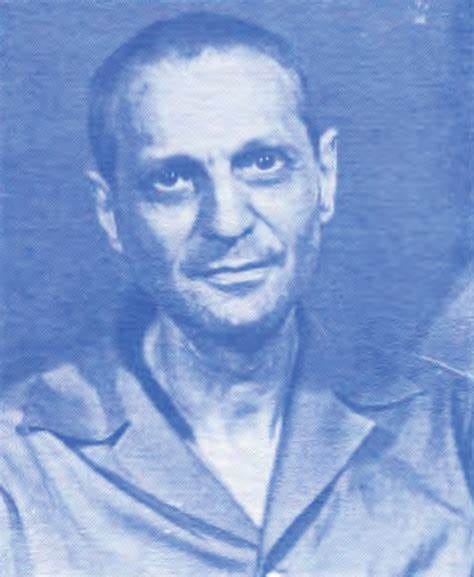

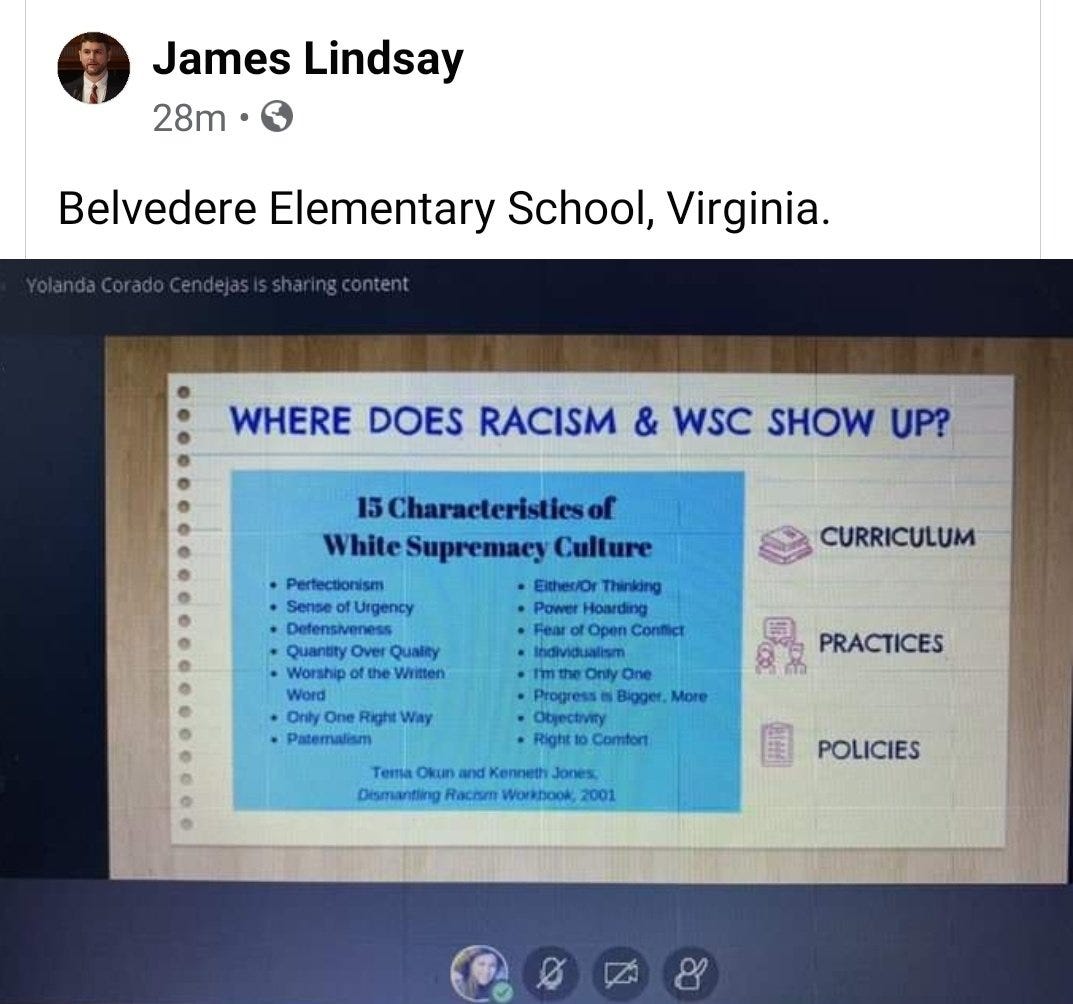
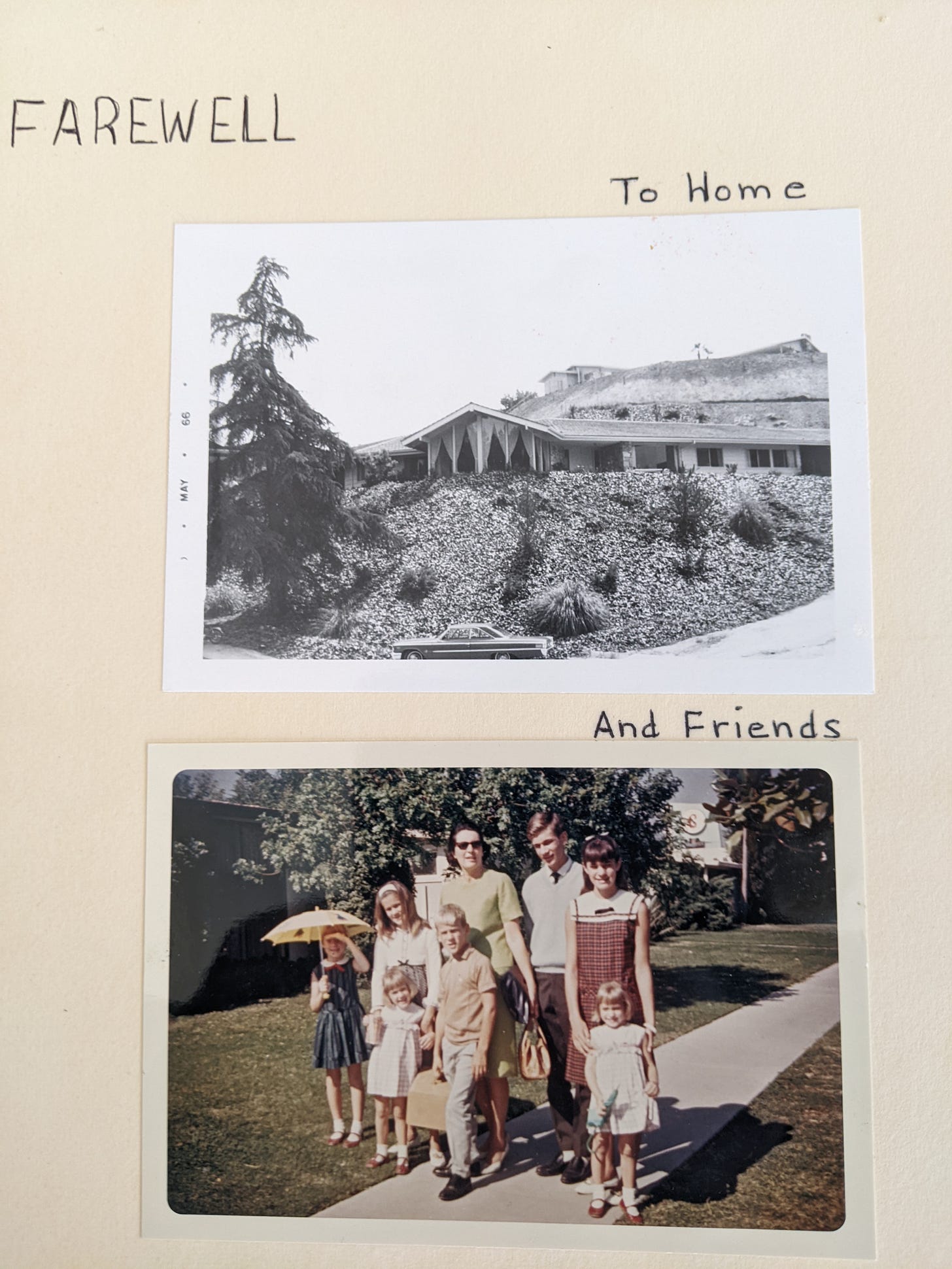
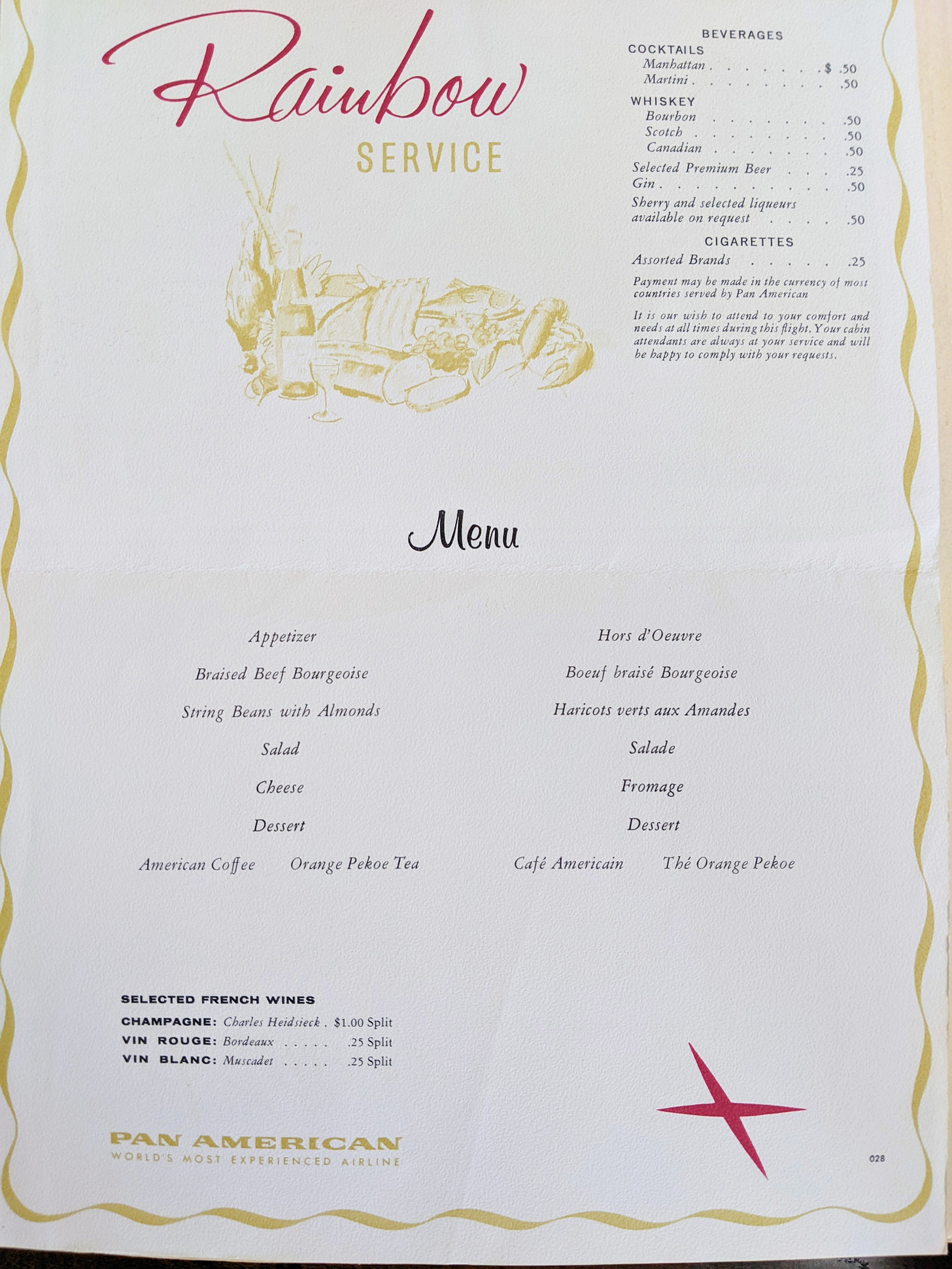
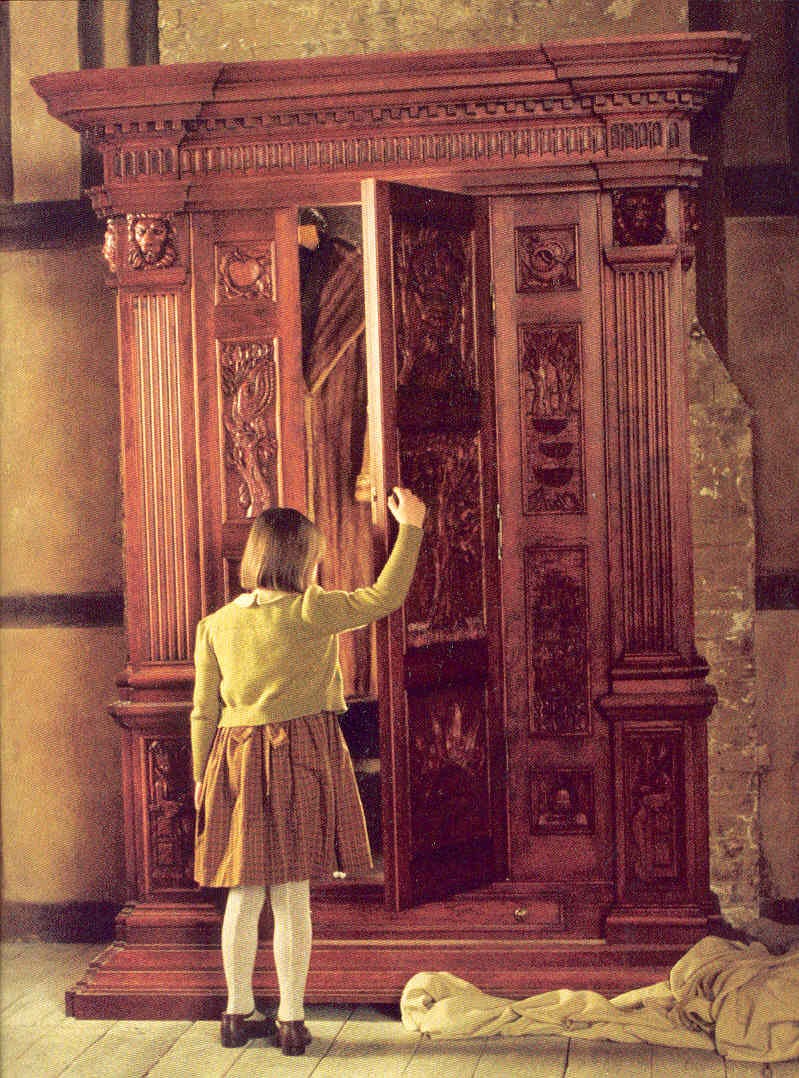
Another wonderful article. I must admit that it did make me question my self worth. The truth is we never know how we will respond to adversity until we face it. You are fortunate to have known people with such immense character.
Wonderful! Thank you!